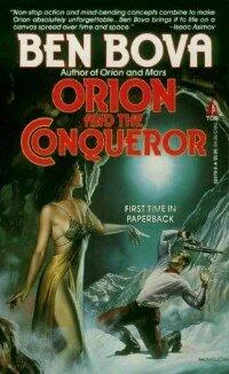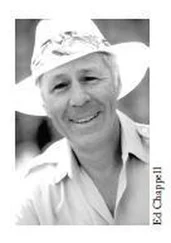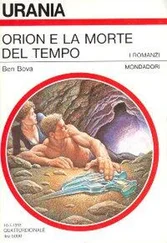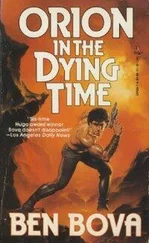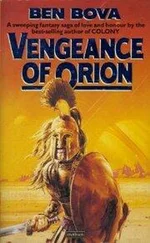“Not all prophecies come true.”
“You doubt my mother?” he asked coldly.
I knew where that would lead, so I evaded with, “Even if you are not killed, if the enemy captures you they will hold you a hostage until your father surrenders to them.”
“In the first place, Orion, my father is more likely to be Zeus than mortal Philip. In the second place, if I am discovered I will fight to the death rather than allow myself to be captured.”
“But—”
“And since I am not destined to die until I have conquered the world,” he overrode me, “I obviously will not be killed now.”
There was no way to penetrate such logic.
“You must accompany me; that is my mother’s command.”
“And the king’s,” I reminded him. “Your father commanded me to protect you at all times.”
He laughed and headed for his tent.
We waited until the crescent moon was setting behind the jagged mountains to the west. All our camp was asleep, except for the sentries standing muffled in their cloaks against the night’s chill.
I slipped out of my tent without waking the other men of the royal guard sleeping there, and wrapped the scabbard of my sword with a long strip of cloth as I made my way to Alexandros’ tent. Silence would be our ally, and I wanted no clink of metal to reveal our presence—either to the enemy or to our own sentries. I wore a dark woolen vest over my chiton, leaving my arms and legs free. The cool night air was no discomfort to me; I simply adjusted my body’s circulation to keep myself warm.
There were two guards on duty before Alexandros’ tent, leaning sleepily on their spears at its entrance. They allowed me inside without challenge. Alexandros was awake and bristling with energy, pacing the length of his tent, which was larger than the one in which six of us guardsmen slept and furnished almost as handsomely as his quarters in the palace. As soon as he saw me he wordlessly took up a dark half-length cloak and fastened it across his shoulders.
“Do you have a hat or a hood?” I asked. “That golden hair of yours is a dead giveaway.”
He nodded and went to a chest at the foot of his cot. From it he pulled out a dark woolen cap and tugged it over his hair.
As far as the guards were concerned, the prince was going for a late-night stroll through the camp with his personal bodyguard. The sentries were a different matter. We had to slip past them without being seen.
“Follow me,” whispered Alexandros. “I scouted our own camp this afternoon.”
He led me to the little stream that meandered through the camp. Tangled bushes grew at its banks, except for the places where the soldiers had cut them down to get at the water. We waded knee-deep into the icy water and made our way out of the camp. When we came to sentries posted on either bank, we ducked low and let the shrubbery screen us. When the stream turned at an angle that hid us from the sentries’ sight, we clambered out, struggling through the thorny bushes onto bare dry ground.
Alexandros shivered, but I thought it was more excitement than the cold. He was happy as a little boy at play. We pressed on toward the enemy camp.
“We should tell Parmenio or one of the other generals that someone can sneak into our camp through that stream,” I whispered.
He made a grunt that might have been an affirmative.
Up ahead I could see camp fires, thousands of them. It looked as if the dark countryside had been visited by a plague of fireflies. But these lights did not dart and flicker through the shadows; they remained fixed in place. I knew that each of them represented anywhere from six to a dozen or more soldiers. There must be fifty thousand troops facing us, I figured.
Far in the distance a few other lights gleamed wanly. I touched Alexandros’ shoulder and pointed.
“That’s the town,” he whispered to me. “Chaeroneia.”
We went down on our bellies and crawled like beetles to get past the enemy sentries. It took a long time; we would inch along, then stop, wait, glance around to see where the sentries were and if they were looking our way. Then we dragged ourselves across a few more feet of the dusty hard ground.
At last we were deep enough inside the camp to get to our hands and knees and scamper behind the shelter of a decent-sized rock.
Alexandros was grinning. “We used to play at this when we were boys, Ptolemaios and Harpalos and I.”
He was little more than a boy now, I thought. But I said nothing.
Once inside the camp’s guarded perimeter it was almost easy to walk around. There were men from many different cities and tribes, and even though they tended to camp amongst their own, we saw that many others were walking through the camp, talking with friends or strangers or drifting alone with their thoughts, unable to sleep on the night before battle.
Alexandros could distinguish among them by their accents. He spoke to several men, low and brief in his words. I noticed that he used the Attic accent rather well, disguising his native Macedonian tongue.
Finally we were among the Athenians. I saw a very large tent, bright with candles within and guarded by half a dozen men in armor.
“Their generals must be there,” I said to Alexandros as we stood in the shadows between lesser tents. “Making their last-minute plans.”
“I wish we could get close enough to listen.” But even reckless Alexandros saw that it would be impossible. The area around the tent was cleared for a good fifty feet and lit at all four corners of the open space by watch fires. The guards could see anyone approaching the tent from any direction.
Then we saw a familiar figure leave the tent: thin, stoop-shouldered, balding, combing the fingers of one hand through his bushy beard.
“Demosthenes!” Alexandros hissed.
“Their generals don’t need his oratory now,” I said.
We watched Demosthenes make his way to his own tent, head bent, walking slowly, like a man deep in thought. The instant he stepped through the tent’s entrance Alexandros started after him.
I tried to stop him. “Are you mad? One yell from him and you’re a prisoner.”
But he pulled away from me. “He won’t yell with my sword’s point at his throat.”
I could either overpower the young hothead or go with him. I went with him.
There was no guard at Demosthenes’ tent. We pushed right inside, drawing our swords.
He looked up, startled. The tent was no great affair, big enough for a cot and a table, little more. Demosthenes was at the table. A dark-skinned man in a colorful robe, his head wrapped in a white turban, stood next to him.
“A Persian!” Alexandros snapped.
“Who are you?” Demosthenes demanded.
“I am Alexandros, prince of Macedon.”
I swiftly took in the tent’s furnishings. The table was bare except for a pitcher of wine and two cups. A hoplite’s panoply of armor stood arrayed on a wooden form in one corner. Next to it rested a large round shield painted blue, with the words “With Fortune” in white around its edge. Four spears stood behind the armor, poking up into the shadowed ceiling of the tent. A chest next to the cot, a sword in its scabbard atop the chest. Nothing else.
“I am not a Persian,” said the dark-skinned man, in strangely accented Attic Greek. “I am from Hindustan.”
“Hindustan?” Alexandros seemed almost to ignore Demosthenes. “Where is that?”
The turbanned man smiled condescendingly. “Far from this place. It lies on the other side of the Persian Empire.” He had large dark liquid eyes. His skin seemed to shine in the lamplight, as if it were oiled.
“Young Alexandros,” said Demosthenes, his voice trembling slightly.
Alexandros suddenly remembered why he was here. Pointing his sword at Demosthenes’ throat, he advanced on the Athenian. “And you are the man who calls my father a sly dog and a vicious beast.”
Читать дальше
